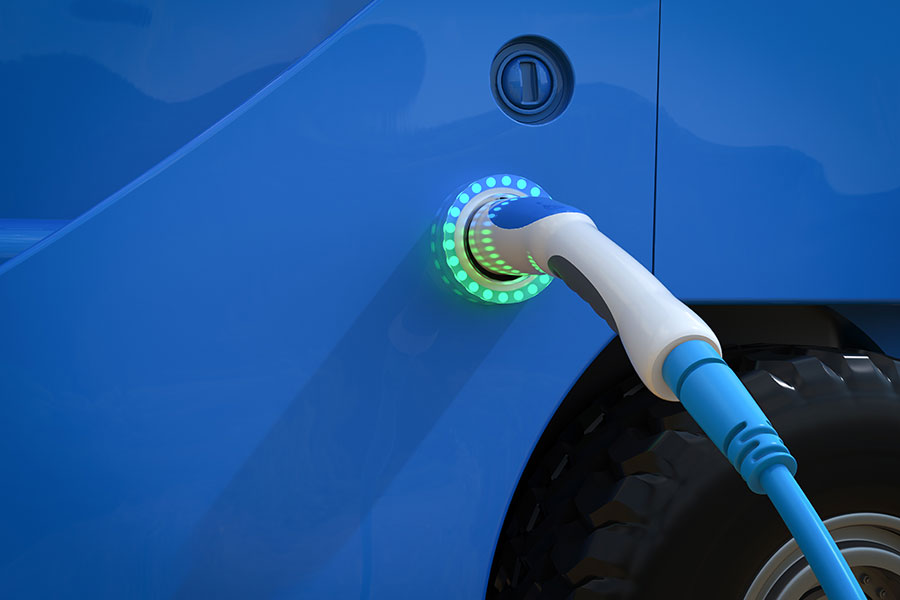By Heart of the SW LEP’s transport advisor, Ian Harrison.
 As we begin to cautiously tread our way out of COVID19, the Heart of the South West LEP is focusing its efforts on ensuring the region’s economic recovery is clean and green. As the LEP’s transport advisor, I advise on how we can make transport less carbon intensive.
As we begin to cautiously tread our way out of COVID19, the Heart of the South West LEP is focusing its efforts on ensuring the region’s economic recovery is clean and green. As the LEP’s transport advisor, I advise on how we can make transport less carbon intensive.
Transport is a significant contributor to the UK’s carbon emissions; at 27%, transport is the largest single sector in UK domestic greenhouse gas emissions (and domestic figures don’t include international air travel and shipping). Our past record on reducing transport emissions is poor, with just a 3% reduction in emissions below 1990 levels.
Earlier in the summer, the Government published its strategy for decarbonising transport. It presents an ambitious and optimistic view of what can be achieved in the transport sector, concentrating on technology such as electric vehicles and the potential of hydrogen as a fuel. However, such ambition needs to be matched by changes in behaviour – by both the public and businesses – if the potential for carbon reduction is to be realised.
So, what should be the priorities for carbon reduction of transport in the South West?
Government states that it wants to make walking, cycling and public transport the preferred modes of travel. This does not just mean more public funding for cycle routes and bus priorities, though capital funding for such schemes is undoubtedly crucial. It could also involve businesses providing secure bike parking and showers, assisted purchase schemes for electric bikes and encouraging staff travel by public transport.
Electrification of the car fleet will not, on its own, be a total solution, but we do need to actively support transition away from petrol and diesel cars. This is not just a matter of public charging points; for example, accommodation providers should be thinking about installing EV charging to convince potential customers that they can use their electric car for a holiday in the south-west without having to worry about how to re-charge when they get here. Employers might also think about providing EV charging at workplaces, or differential car allowances to encourage staff to use electric vehicles.
For the roll-out of public EV charging, it is likely that priority will have to be given to those communities where the business case for private sector installation is relatively weak – probably coastal and market towns. In addition to the provision of charging facilities, the electricity distribution network may need upgrades.
For public transport, the Government has made a major commitment to both improving bus services and demonstrating how the bus fleet can become carbon zero. The business case for bus industry investment to decarbonise its fleet will depend upon local transport strategies which prioritise bus travel.
Rail is the lowest carbon form of surface transport, so connecting communities to the rail network through new stations and bus links is a priority. However, the pace of electrification of the main line network also needs to be significantly speeded up.
Freight is another significant challenge, particularly as the solutions for decarbonising heavy goods vehicles (either battery or hydrogen) are some way off. At present the south-west peninsula is almost entirely dependent on road transport. The scope for a range of simple rail-freight terminals needs to be explored.
Even with diesel locomotives, transport of freight by rail is much lower in terms of carbon emission than road haulage. It is also much more efficient in manpower, which is highly relevant in view of the well-publicised shortage of lorry drivers.
Aviation and Maritime also make significant contributions to the carbon emissions from transport, and the LEP needs to use its engagement in these significant sectors of the south-west economy to move towards zero carbon solutions.
Transport is a derived demand – as a LEP, and business sector, we need to capitalise on the opportunities which have been highlighted by COVID19 – the benefits of digital communication as a means not just of reducing travel (and hence carbon emissions) but also improving productivity (reducing time taken travelling).
The climate change challenge is urgent, and we need to pick up the pace in decarbonising transport. This is not about grand projects, which take many years to develop and deliver; it is about a range of smaller schemes and actions, which can be delivered quickly and will together make a difference.


